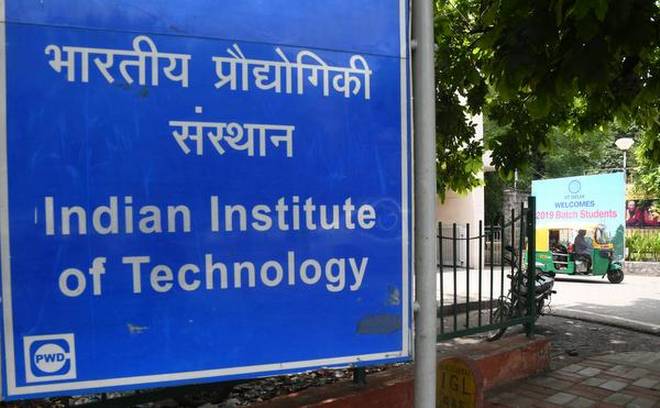The decision was taken by the IIT Council, headed by Ramesh Pokhriyal Nishank

The HRD Ministry recently directed the Indian Institutes of Technology (IIT) to collate data on the research output of each teacher, The Telegraph reported.
The move from the HRD reportedly came in after only 3 IITs featured in the recently releasedQuacquarelli Symonds and Times Higher Education rankings of global universities. These three IITs featured in the top 200 and none in the top 100.
The human resource development ministry had written to the 23 tech schools seeking the details for discussion at the September 27 meeting of the IIT Council, headed by the HRD minister.
If 50% of existing teachers at IITs, which face a faculty shortage of 15-35%, are not doing good work, the institutes are barely surviving with just 30% credible teaching staff, said a senior professor of an older IIT told LiveMint, requesting anonymity.
Another IIT professor said that the discussions at the council meeting had led to the introduction of a ‘tenure track system’. Under the tenure track system, they would be safe for five-and-a-half years before facing a sterner test by external reviewers, with a presumably higher likelihood of the sack.
In 2011, the then environment minister Jairam Ramesh had kicked up a storm when he publicly said that the IITs were “excellent because of the quality of students, and not because of the quality of research or faculty.”
DheerajSanghi, a professor at IIT Kanpur, said: “The scrutiny of research should be left to the individual institution. The government should focus on incentivising performance.”
IIT-Kanpur got a research score of 24.5 and citation score of 35.2. Compare this with China’s Peking University, which has a research score of 90 and citation score of 73.2. Citation score is based on the number of times a research work has been referred to by fellow researchers, globally.
He further argued: “Faculty members in the humanities streams write books, so scrutinising their published papers cannot be a good tool to assess their performance.”
An IIT Delhi teacher said that the current policy of paying a uniform salary to teachers, irrespective of their current research output, left them with no incentive to pursue research.
Expressing disdain over this demand of the HRD ministry, an IIT Bombay teacher said that this microscopic scrutiny of individual teachers’ research output showed the lack of confidence the government had in the institutes.
Are the IITs Doing Enough?
To generate more funds for their operations, the IITs had recently hiked their fees for Master of Technology courses tenfold. However, increasing funding alone is not the only way to create a prominent university. Issues of politicization, bureaucratic control and nepotism that currently plague the university system need to be tackled.
In IIT Delhi, the HRD ministry under the current government has sought to force the institution to accept a student’s admission despite being initially rejected, and R K Shevgaonkar and Anil Kakodkar, former governors and chairpersons of IIT Delhi and IIT Bombay respectively, have in the recent past resigned from their posts citing an increase in government interference—Shevgaonkar was pressured to release funds to pay BharatiyaJanata Party member Subramanian Swamy “salary dues,” while Kakodkar quit over alleged disagreements with then HRD Minister SmritiIrani over appointments to the IIT board.
Also, it is to be noted that the IITs that were modeled on the Massachusetts Institute of Technology (MIT) must stop emulating it and carve their own path in research and development. Scientific research also needs to be ‘de-bureaucratised’ and placed in the hands of the private industry.
Experts say that the IITs must innovate after understanding the social processes that produce certain demands and how goods are to be distributed in an unequal society. They need to better engage with the social realities in the country.
Higher education secretary R. Subrahmanyam defended the government’s letter and tried to ally the teachers’ fears, saying the data would be placed before the individual institutes’ boards of governors “for review and action”.
“The IITs are public-funded institutions. We are saying, how many faculty members have not published anything? There is nothing wrong (in it),” he said.
“They (the institutes) will place the data before their boards of governors for review and action.”
This situation where the HRD has asked IITs to report with professors’ report outputs feels like a teacher taking a kid to task for not doing well in the exams. Will this punitive move pay off?
Related
Students protest against 900% MTech fee hike, demand rollback
IIT Gandhinagar’s Opaque Admission Norms: Bias Against SC/ST Candidates?
Abuse & Discrimination Blacken India’s Institutes of ‘Higher Learning’
